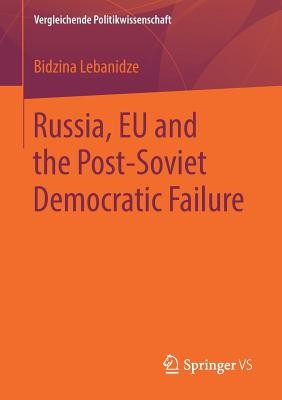
- We will send in 10–14 business days.
- Author: Bidzina Lebanidze
- Publisher: Springer vs
- ISBN-10: 3658264454
- ISBN-13: 9783658264451
- Format: 14.8 x 21 x 1.8 cm, minkšti viršeliai
- Language: English
- SAVE -10% with code: EXTRA
Russia, Eu and the Post-Soviet Democratic Failure (e-book) (used book) | bookbook.eu
Reviews
Description
By studying the influence of the two main external actors in post-Soviet space, the EU and Russia, this study contributes to the increasing body of literature that studies the causes of democratic recession and authoritarian backlash in post-Soviet states and the role of regional actors in these processes. Empirically, the study finds the EU to be both a democracy-promoting and democracy-hindering actor in post-Soviet states. Russia's impact, on the other hand, is far more negative than the literature on democratization and autocracy promotion typically suggests. It negatively affects both the quality of democracy of post-Soviet states and limits the EU's options for promoting democracy in its neighborhood.
EXTRA 10 % discount with code: EXTRA
The promotion ends in 21d.04:26:27
The discount code is valid when purchasing from 10 €. Discounts do not stack.
- Author: Bidzina Lebanidze
- Publisher: Springer vs
- ISBN-10: 3658264454
- ISBN-13: 9783658264451
- Format: 14.8 x 21 x 1.8 cm, minkšti viršeliai
- Language: English English
By studying the influence of the two main external actors in post-Soviet space, the EU and Russia, this study contributes to the increasing body of literature that studies the causes of democratic recession and authoritarian backlash in post-Soviet states and the role of regional actors in these processes. Empirically, the study finds the EU to be both a democracy-promoting and democracy-hindering actor in post-Soviet states. Russia's impact, on the other hand, is far more negative than the literature on democratization and autocracy promotion typically suggests. It negatively affects both the quality of democracy of post-Soviet states and limits the EU's options for promoting democracy in its neighborhood.


Reviews